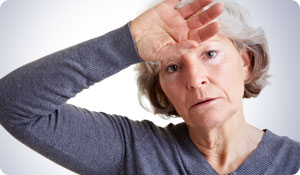
The act of sweating is our body's built-in cooling system. We normally sweat when we're in a warm environment or are exercising. When we have a fever due to the flu or other illness, it may also trigger sweating. And, as many women will attest, sweating and hot flashes are a frequent—and unwelcome—side effect of menopause.
Is Sweating a Sign of Cancer?
While excessive or unexplained sweating is usually due to other causes, it can be a sign of several types of cancers, including:
- Chronic Lymphocytic Leukemia, cancer of the lymphatic system
- Hodgkin Lymphoma's, a cancer of the immune system
- Pheochromocytoma, a tumor in the center of the adrenal gland, which causes it to make too much adrenaline
- Tumors of the nervous and endocrine system
- Carcinoid tumors, which are slow-growing cancers that usually appear in the gastrointestinal tract and lungs, but also appear in other organs, such as the ovaries and testes
Sweating may be caused by the actual tumor, cancer treatment, or an other, unrelated condition. Most breast cancer and prostate cancer patients, for example, report experiencing moderate to severe hot flashes. Tamoxifen, which is often used to treat breast cancer, often produces hot flashes. So can many other medications, such as aromatoase inhibitors, which block the growth of estrogen-sensitive breast cancers, opiods (for pain), antidepressants, and steroids (for swelling and inflammation).
Cancer treatment can cause your blood cell counts to decline, and sweating is one of the side effects of too few white blood cells. Your physician will probably check your blood counts frequently to make sure they don't dip to unsafe levels.
Managing Sweating and Hot Flashes
Although hot flashes are annoying and somewhat uncomfortable, you can steps to minimize the intensity and discomfort of sweating.
- With your doctor's approval, take a medicine such as Tylenol that reduces fever.
- Dress in loose layers so the outside layer can pull moisture away from your skin.
- If your clothes become wet from sweating, change them as soon as possible and keep your bed linens dry.
- Bathe daily to soothe your skin and maintain good hygiene.
- Practice relaxation and deep breathing exercises.
- Use fans or open your windows when possible.
Sources:
Mayo Clinic. "Leukemia." Web.
http://www.mayoclinic.com/health/leukemia/DS00351/DSECTION=symptoms
Night Sweats No More. "Chronic lymphocytic leukemia." Web.
http://www.night-sweats.net/chronic-lymphocytic-leukemia.html
National Cancer Institute. "Fever, Sweats, and Hot Flashes (PDQ®). Web. 12 January 2010.
http://www.cancer.gov/cancertopics/pdq/supportivecare/fever/Patient/page3
Mayo Clinic. "Low blood cell counts: Side effect of cancer treatment." Web. 19 September 2009.
http://www.mayoclinic.com/health/cancer-treatment/CA00066/NSECTIONGROUP=2
American Cancer Society. "Sweating." Web. 27 April 2009. http://www.cancer.org/docroot/mbc/content/mbc_2_3x_sweating.asp





